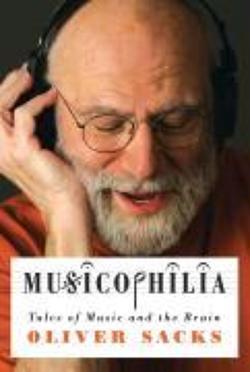La Quimera de Gupta reviewed Musicofilia by Oliver Sacks
¿Existen estructuras anatómicas exlusivas para la música en el cerebro?
3 stars
El siempre magnífico Oliver Sacks seguirá sacudiendo nuestros cerebros varias décadas después de su muerte. En musicofilia se propuso demostrar, siempre con su método heredero del interpretativimos de Max Weber y mejorado con un constante empirismo, que la música posee estructuras exclusivas en el cerebro: existen personas que pierden completamente el habla y la memoria semántica, pero son capaces de recordar música, aprender nueva y mantener intactas sus habilidades musicales.
La mayor parte del libro está dedicada a este tipo de personas –personas que con grandes demencias, donde pierden toda la memoria, conservan las habilidades musicales en perfecto estado (y la memoria musical)– y a personas que han obtenido habilidades musicales repentinas, por traumas o lesiones, o por tipos particulares de demencia, como la demencia frontolateral que en ocasiones puede cursar con una hipermusia acusada, o personas con habilidades musicales naturales, como en el caso del síndrome de Williams, no …
El siempre magnífico Oliver Sacks seguirá sacudiendo nuestros cerebros varias décadas después de su muerte. En musicofilia se propuso demostrar, siempre con su método heredero del interpretativimos de Max Weber y mejorado con un constante empirismo, que la música posee estructuras exclusivas en el cerebro: existen personas que pierden completamente el habla y la memoria semántica, pero son capaces de recordar música, aprender nueva y mantener intactas sus habilidades musicales.
La mayor parte del libro está dedicada a este tipo de personas –personas que con grandes demencias, donde pierden toda la memoria, conservan las habilidades musicales en perfecto estado (y la memoria musical)– y a personas que han obtenido habilidades musicales repentinas, por traumas o lesiones, o por tipos particulares de demencia, como la demencia frontolateral que en ocasiones puede cursar con una hipermusia acusada, o personas con habilidades musicales naturales, como en el caso del síndrome de Williams, no tanto porque estas personas nazcan con sus habilidades musicales, sino por la voracidad de música que llevan en su naturaleza: esto les hace más sensibles a ella.
Una lectura muy recomentable.

